Seattle University School of Law is pleased to announce it has hired nine outstanding new full-time and affiliated faculty members, one of the largest cohorts in recent memory. Elizabeth Baldwin ’04, Chryssa Deliganis, Ronald Krotoszynski, Erin Lovell, Jeffrey Omari, Philipp Renninger, Kellye Testy, Francisco Valdes, and Mark Verstraete will begin on July 1, when the 2025-26 academic year officially starts. All are respected and gifted leaders in law and legal academia with significant expertise and scholarship in their respective areas. They are also committed teachers and mentors who share a passion for educating law students and advancing Seattle U Law’s Jesuit Catholic social justice mission.
“I am thrilled to welcome these accomplished professors to our law school,” said Dean Anthony E. Varona. “With their dedication to excellence and teaching and scholarship, and their leadership across many areas, their presence will make our already strong, nationally and internationally groundbreaking faculty even more exceptional.”
Meet Elizabeth Baldwin ’04, assistant professor of lawyering skills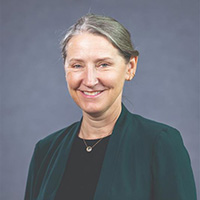
As a Seattle U Law graduate, Baldwin is no stranger to Sullivan Hall. Born and raised in Portland, she completed her undergraduate studies at the University of Oregon Honors College and earned a master’s degree in applied linguistics from Columbia University. Baldwin is a longtime teacher and educator, having spent the first portion of her career teaching English as a second language to immigrants and refugees, from her practicum at Columbia in New York to teaching at a public high school in Oregon. These experiences piqued her interest in the legal issues immigrants face.
“I have a long history of working with writers and English language learners, which is what got me to teach legal writing,” she said. “I originally wanted to become a lawyer to continue to serve those same families I’d been serving as a teacher.”
During her 2L and 3L years at Seattle U Law, Baldwin gained valuable experience as a legal advocate at Northwest Immigrant Rights Project (NWIRP). Following graduation, she clerked for Judge David Armstrong with the Washington State Court of Appeals, Division II, worked as the immigrant child legal rights coordinator at Volunteer Advocates for Immigrant Justice, taught legal writing courses for more than a decade at the University of Washington School of Law, and spent more than four years as an attorney at Kids in Need of Defense (KIND), where she represented unaccompanied minors in removal proceedings. Last summer, she joined Seattle U Law as a visiting assistant professor.
“The reason I was interested in Seattle U is that I’ve had so many great mentors in the Legal Writing Program — Mimi Samuel, Laurel Oates, Janet Dickson, and Anne Enquist,” she said. “They’ve been very important figures for me. I’ve gotten so much from them in terms of support and guidance.”
As she moves into a career faculty position, Baldwin will continue to teach Legal Writing I and Immigration Law, two of her areas of expertise, as well as provide pro bono legal aid to immigrants by working with NWIRP and KIND.
“My entire career has been focused on public service,” Baldwin said. “It matters to me to be attached to an organization like Seattle University that is aligned with me on those kinds of values.”
Meet Chryssa Deliganis, assistant professor of law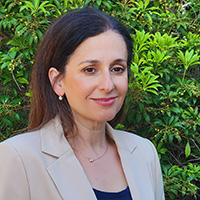
A native Washingtonian, Deliganis dreamt her entire life of teaching law and long admired Seattle U Law for “its Jesuit Catholic mission, the way it embeds itself within the community, and its many experiential law opportunities, coupled with top-flight faculty.” After earning a bachelor’s degree in rhetoric from the University of California, Berkeley, and a JD from Harvard Law School, she tried her hand at a few different legal areas.
“I always wanted to teach, but I was busy and took the circuitous route back to academia,” she said.
Deliganis held positions in private practice, including as an attorney at Foster Pepper (now Foster Garvey), as a consultant for BARBRI Bar Review, the preeminent provider of bar preparation services, and as a clerk for Judge Richard Tallman of the U.S. Court of Appeals for the Ninth Circuit. In her work as a litigator, she successfully argued a case before the Washington Supreme Court for enforcement of residential restrictive covenants.
Four years ago, Deliganis accepted a position as a visiting assistant professor at Seattle U Law, teaching Health Law, Food and Drug Law, and Civil Procedure. With the new presidential administration and its changes to the U.S. Department of Health and Human Services, she said it is an especially interesting time to teach Health Law.
“I enjoy engaging with 1L students and being part of their early memories,” Deliganis said. “I love showing them how wonderfully interesting property and civil procedure are, even though they’re sometimes perceived as not as interesting.”
Now, Deliganis, who specializes in property law, health law, and ethics, will assume a permanent, tenure-track position.
“I’m tickled to be able to have this opportunity to stay on here. It’s my top choice of any place to work,” Deliganis said. “I love the other faculty, I love the students — they are just fantastic — as well as the alumni network. I’ve enjoyed increasing our bonds with the community and getting to know them. This school is rich with people.”
Meet Ronald Krotoszynski, distinguished affiliate faculty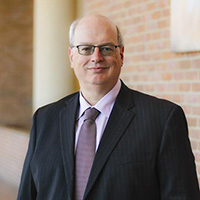
Krotoszynski returns to Seattle U Law after serving as a distinguished visiting scholar in residence during the summer of 2023 and as Luminaries in Law speaker earlier this year. He is currently the John S. Stone Chairholder of Law and director of the Program in Constitutional Studies & Initiative for Civic Engagement at the University of Alabama School of Law.
At the Luminaries event, Krotoszynski presented his latest book, "Free Speech as Civic Structure: A Comparative Analysis of How Courts and Culture Shape the Freedom of Speech” (Oxford University Press, 2024). Drawing upon the book’s themes in his lecture, he examined whether the courts in countries where freedom of speech is guaranteed in written texts, such as constitutions, have stronger records of upholding that freedom than those in nations with no such textual guarantees.
Krotoszynski earned bachelor’s and master’s degrees from Emory University and JD and LLM degrees from Duke University School of Law, where he was articles editor for the Duke Law Journal and selected for Order of the Coif. He clerked for Judge Frank M. Johnson, Jr. of the United States Court of Appeals for the Eleventh Circuit and was an associate with Covington & Burling, D.C.
Prior to joining the faculty at the University of Alabama School of Law, Krotoszynski served on the law faculty at Washington and Lee University and, prior to that, on the law faculty of the Indiana University School of Law-Indianapolis. He also has taught as a visiting professor at Washington and Lee University School of Law, the Marshall-Wythe School of Law at the College of William and Mary in Virginia, at Florida State University College of Law, and at Brooklyn Law School. Krotoszynski has also held appointments as a visiting scholar in residence at the University of Washington School of Law and Lewis and Clark School of Law in Portland. Krotoszynski is familiar with Seattle, having worked for Davis Wright Tremaine as a law student and spent a sabbatical year in Seattle in 2010; he also routinely enjoys summers here.
Krotoszynski looks forward to his new teaching duties this fall, which will augment and strengthen his previous ties to Seattle University School of Law when he served as a distinguished visiting scholar.
Meet Erin Lovell, assistant professor of lawyering skills and associate director of Externship Program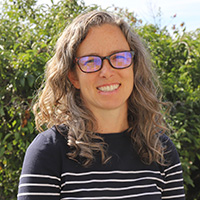
Lovell’s strong public interest background will feature heavily in her new role as assistant professor of Lawyering Skills and associate director of the Externship Program. The founding executive director of Legal Counsel for Youth and Children (LCYC), she grew the organization to provide legal representation to more than 850 youth annually around Washington state in the areas of homelessness, juvenile defense, child welfare, and immigration, partnering with other nonprofits to provide additional wraparound support.
“We started with representing kids in child welfare cases but grew — the idea was to cover as many things as possible in one space,” said Lovell, who earned a bachelor’s degree in political science from the University of Notre Dame and a law degree from Northwestern University Pritzker School of Law.
Before launching LCYC, she worked as a public defender in Seattle representing parents and children in the child welfare system. As a law student, she sought out experiential learning opportunities, such as a juvenile defense clinic, civil legal aid, public defense, and judicial externships, and a trip to study the juvenile justice systems of Namibia and Botswana. Lovell has also learned and grown through living abroad in Japan, Ireland, and Luxembourg. It was at LCYC, however, where she got to know many alumni and students, as Seattle U Law is the most common alma mater among LCYC’s team.
“Part of why I applied for this position was because of my positive experiences working with Seattle U Law alumni and students at LCYC,” said Lovell, who will teach externship seminars. “They embody a commitment to social justice, so it was easy for me to believe that Seattle U was committed to encouraging and promoting the development of lawyers who are going to make big changes.”
She plans to use her network to help connect students with experiential learning opportunities.
“I’m mission-driven and like the idea of being able to support the next generation of lawyers who are going to carry the baton forward,” she said. “I hope I can help whichever students I encounter have some commitment to helping others.”
Meet Jeffrey Omari, associate professor of law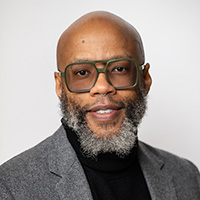
Omari, currently on the faculty at Gonzaga University School of Law, is eager to cross the Cascades to join the state’s other Jesuit Catholic law school.
“I value and support Jesuit universities like Seattle University and Gonzaga,” Omari said. “My work is definitely social justice oriented.”
Although he has spent the last seven years in legal academia, Omari began his legal career in practice.
“I am the itinerant academic — my road has been long, winding, and non-traditional, and I’ve lived in a lot of different places,” he said.
He earned his bachelor’s degree in business and marketing from Morehouse University in Atlanta, after which he completed law school at the University of Illinois School of Law. A longtime music industry lawyer, Omari interned at LaFace Records (with signed artists such as Outkast, Usher, and TLC) while in law school. After graduating from law school, he returned to Atlanta and worked at a music law firm and a music publishing company. He then moved to Los Angeles, where he worked at entertainment giants like the ABC Cable Networks Group and MGM Studios, Inc.
While in Los Angeles, he tried his hand at teaching evening music law classes at colleges in Los Angeles, which led him to decide he was ready to go back to school himself. Omari earned a doctorate in anthropology from the University of California, Santa Cruz, during which he conducted 18 months of fieldwork in Brazil researching internet governance laws, which promote a civil right to internet access for Brazilian citizens.
“The research and work I do sits at this intersection of law, technology, social sciences, and democracy,” he said. “Digital rights are communication rights.”
Omari, who will teach in the law school’s Technology, Innovation Law, and Ethics (TILE) Program, has already taken part in a TILE event, a panel on intellectual property (IP) careers held in November. He also wrote a blog post for the university’s Technology and Ethics Initiative.
“There are so many synergies between my research and what’s happening at Seattle U,” he said. “At Seattle U, I will be teaching Constitutional Law and Administrative Law, as well as a media law course, which I’m really excited about because I feel like that’s in perfect alignment with my background, research, and experience as a music lawyer.”
Meet Philipp Renninger, visiting assistant professor of law and assistant director for Global Engagement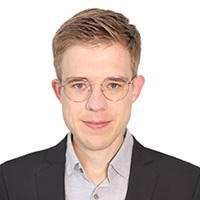
As Seattle U Law expands its international reach, Renninger, currently a University of Arizona James E. Rogers College of Law global professor of practice, brings expertise in several foreign legal systems.
Renninger received his first, undergraduate degree in law from the University of Freiburg in his native Germany. He also earned a dual Ph.D. in law from both Freiburg and the University of Lucerne in Switzerland. Renninger specializes in constitutional law and administrative law, jurisprudence, comparative law, and international law. His graduate studies included a year-long exchange at the University of Nanjing in China, studying Chinese language and law.
“It’s important if you research one country to have on-the-ground experience, otherwise you’re just making informed guesses,” Renninger said.
Renninger’s teaching experience is just as multicultural as his legal education. He has taught law in the U.S. (Arizona and Harvard Law School), Germany (the Max Planck Institute for Comparative and International Law in Heidelberg), Switzerland (Lucerne), the U.K. (Oxford University and King’s College London), and Singapore (National University). For the past two years, Renninger has taught American law to Chinese students in Arizona’s satellite campus in Qingdao, China, where he met Varona.
“I really enjoyed meeting the dean,” Renninger said. “It was one of the best conversations I had in the last year.”
Renninger hopes to help Seattle U Law establish relationships with foreign law schools.
“Seattle is in a great position to do that,” Renninger said. “It’s an attractive city with a large Asian American population, with international companies headquartered there, and it is historically the gateway to Pacific trade.”
This fall, Renninger will teach Civil Procedure to Flex JD students, as well as continue his research on how authoritarian leaders manipulate the law and use the legal academy to further their goals. He is looking forward to working with his new colleagues at Seattle U Law, moving closer to relatives in Vancouver, B.C., and enjoying the beauty of the Pacific Northwest.
“It’s the people who make a law school. I felt immediately welcome during the onboarding process,” Renninger said. “Everyone is so supportive in Seattle; it’s a great step to take.”
Meet Kellye Testy, distinguished professor in residence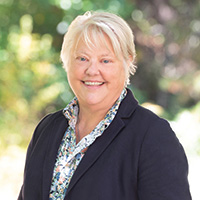
Testy will return to the faculty she first joined in 1992, just one year after graduating from Indiana University Bloomington Maurer School of Law (she also earned her bachelor’s degree in journalism and business from the university).
Testy’s 17-year tenure at Seattle U Law included five years as dean and more than a decade teaching business and commercial law, as well as law and equality.
She looks forward to connecting with and mentoring current students and faculty as well as to reconnecting with alumni and friends who have supported the school through many phases of its history.
“I am really honored and excited to come back because Seattle U Law is where I launched my entire career,” she said. “I love the school and its mission — it’s always meant so much to me.”
Since leaving the law school, Testy gained valuable leadership experience as dean of the University of Washington School of Law for eight years, seven years as president and CEO of the Law School Admission Council (LSAC), and now the past year as CEO and executive director of the Association of American Law Schools (AALS), a role she will still hold while teaching Law and Leadership annually at Seattle U Law.
“That experience will be really helpful in my own teaching, and to the school, especially as it continues to develop a national network,” Testy said.
She plans to use that national network to spread the word about the areas in which Seattle U Law excels, such as legal writing and experiential education, as well as the school’s social justice mission and immersion in the community. She also wants to expand the law school’s offerings in the subject of leadership, since many lawyers take on leadership roles as elected officials or heads of businesses.
“It’s unbelievable what you learn in the field. I’ve had so much more experience in law and in leadership, working with every law school around the country at LSAC and now at AALS,” she said. “It’s given me a perspective on American education as a whole that will be really helpful.”
Meet Francisco Valdes, distinguished professor in residence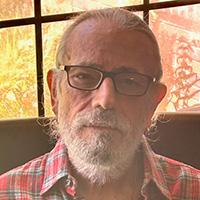
After spending 30 years on the University of Miami School of Law faculty, Valdes is returning to the West Coast, where he began his teaching career. Born in Cuba and raised in Florida, Valdes completed his undergraduate studies at the University of California, Berkeley, before returning to Miami to start two magazines — “Cutting Loose,” focused on news, and “Images,” which showcased photography and nightlife.
He earned his JD from the University of Florida School of Law, then worked for law firms in Miami and San Francisco. After growing disillusioned with the corporate grind, Valdes enrolled in Stanford Law School, earning Doctor of Juridical Science and Master of the Science of Law degrees while also teaching for the first time.
Seattle U Law is an attractive place to Valdes because, in the current political climate, he appreciates that it is a center for intellectual debate.
“Knowledge and freedom of knowledge are under attack in this country,” Valdes said. “Seattle U Law is part of the network of larger Jesuit Catholic institutions and a place that systemically and historically has become a hub for things that are under attack and really threatened. Seattle U Law is very well-positioned to be part of what helps this country withstand that attack in the long run.”
Valdes, who is an expert in constitutional law, critical theory, comparative studies, queer theory, and critical race theory, said he is part of the phenomenon that some have dubbed the “brain drain” in Florida — the flight of university faculty out of a state that is becoming more hostile to certain fields of study and areas of research.
“It’s a very weird thing to be living through,” Valdes said of the country’s political polarization. “One lives in a betrayed country, and that is a very disheartening thing. There are bright spots, and Seattle is one of them.”
Valdes is busy developing an advanced course in constitutional law focused on equal protection and due process, especially relating to race, sex, and sexual orientation. He also plans to introduce a book series translated into Spanish in partnership with Jesuit Catholic universities in South America, while supporting events organized by the law school’s Critical Justice Initiative.
“I am looking forward to being a resource for mentorship for junior faculty and students,” Valdes said.
Meet Mark Verstraete, assistant professor of law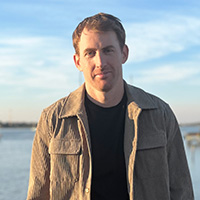
The TILE Program is what initially drew Mark Verstraete to Seattle University School of Law.
“I couldn’t be more thrilled to help expand the TILE Program and lend my expertise in technology law to the Law School,” he said.
The TILE Program was a natural fit for Verstraete given his research focus at the intersection of technology and ethics.
“I’m excited to be at a place emphasizing technology law and making it a core area of teaching,” said Verstraete, who is currently an affiliate fellow at New York University School of Law’s Information Law Institute.
Verstraete’s undergraduate degree in philosophy from the University of Georgia lines up well with his legal work. After graduating from Harvard Law School, he worked as a research associate at the University of Arizona James E. Rogers College of Law and the University of California, Los Angeles’ Institute for Technology, Law, and Policy, where his research used philosophical methods to examine how personal data should be regulated, as well as other emerging topics in privacy law.
“Technology law often involves novel questions that don’t have settled answers — philosophical thinking about what the law should be is necessary to respond to some of the threats from emerging technology, such as AI,” he said.
In addition to his academic work, Verstraete practiced civil rights law with the firm Mitchell Shapiro Greenamyre & Funt in Atlanta. He represented clients who had been wrongfully arrested or subjected to excessive force by police officers.
When he is not teaching Property Law, Privacy Law, and Commercial Law, Verstraete plans to organize a junior scholars’ law and tech workshop through TILE, where early-career faculty from around the country can present their scholarship.
“I am looking forward to working with the students,” Verstraete said. “I like the community and social justice focus of the law school.”

.jpg)